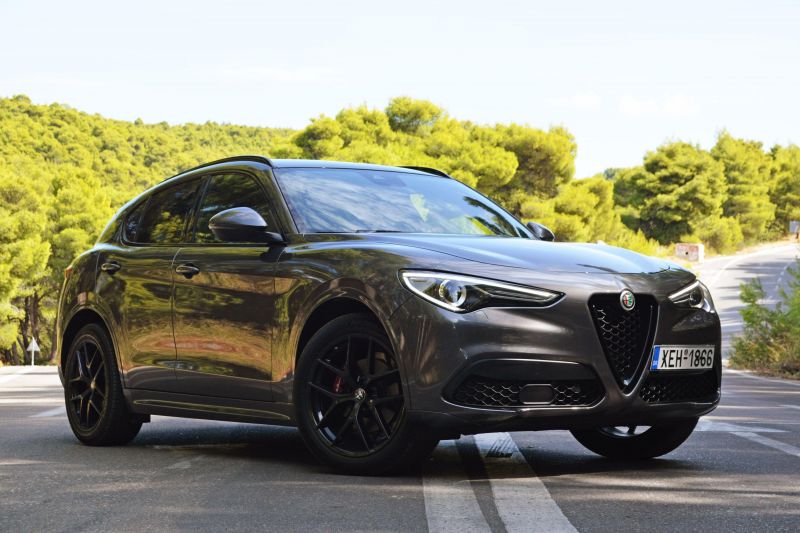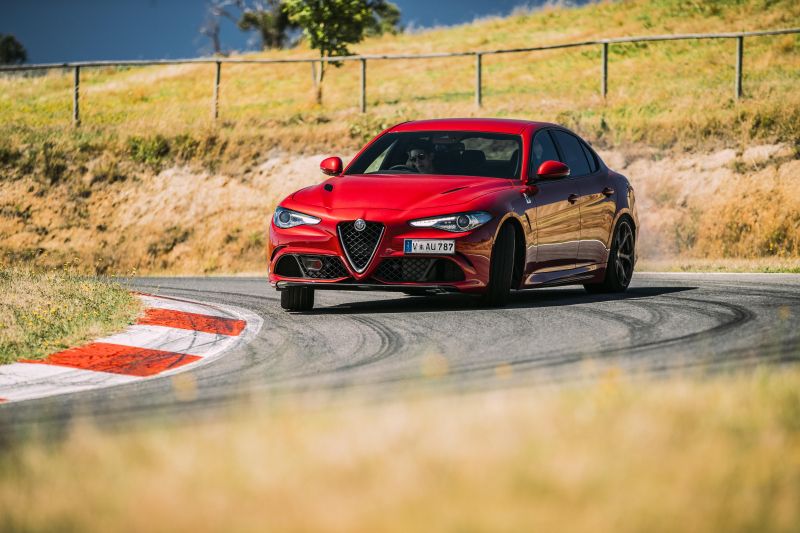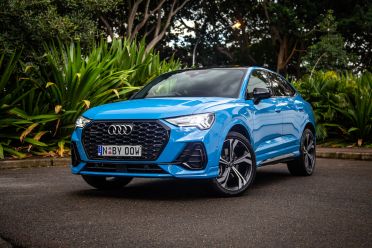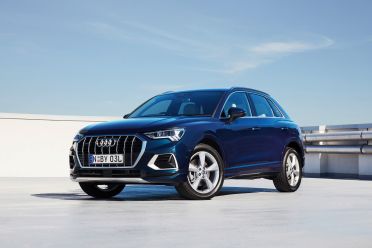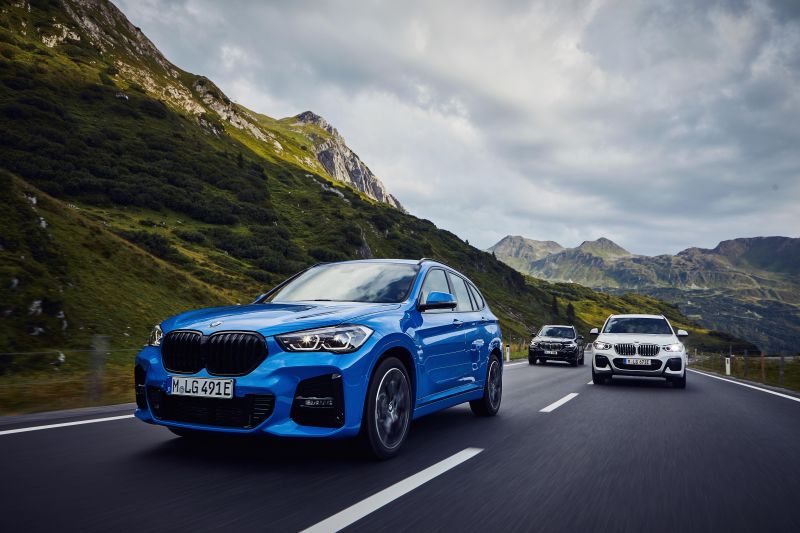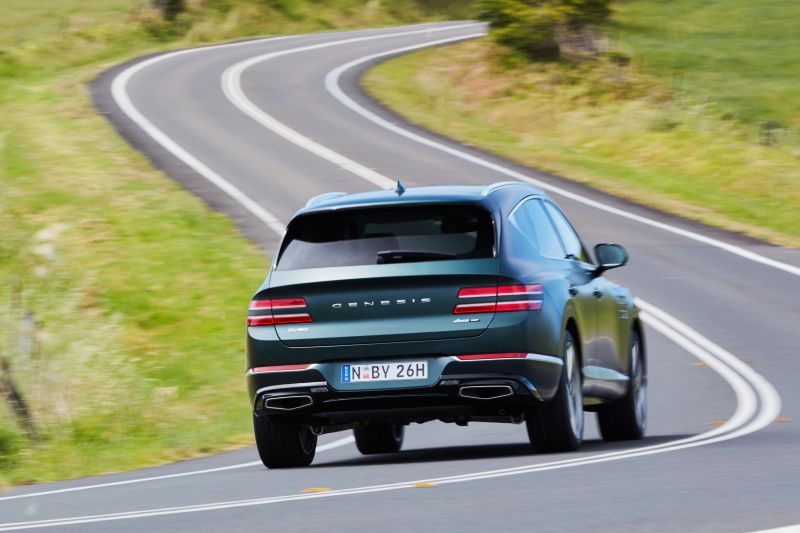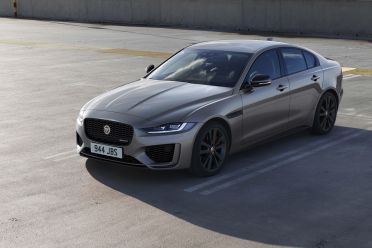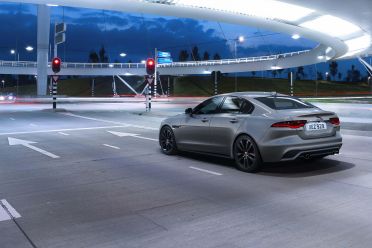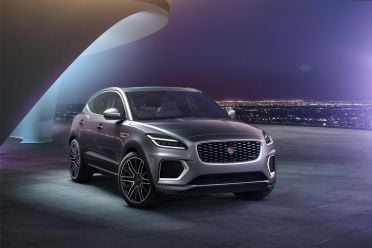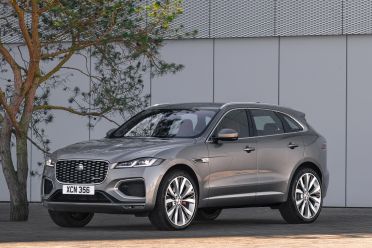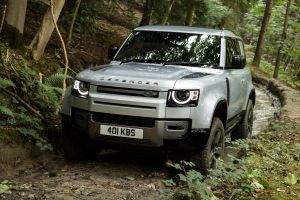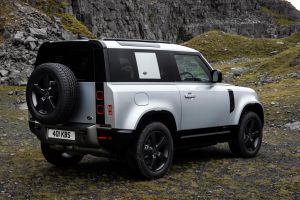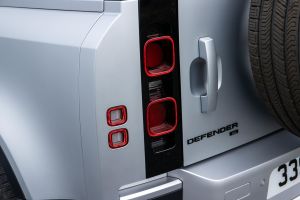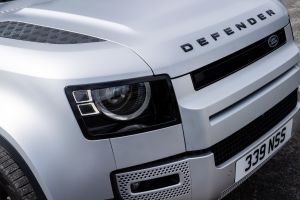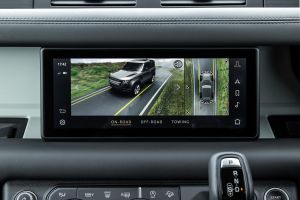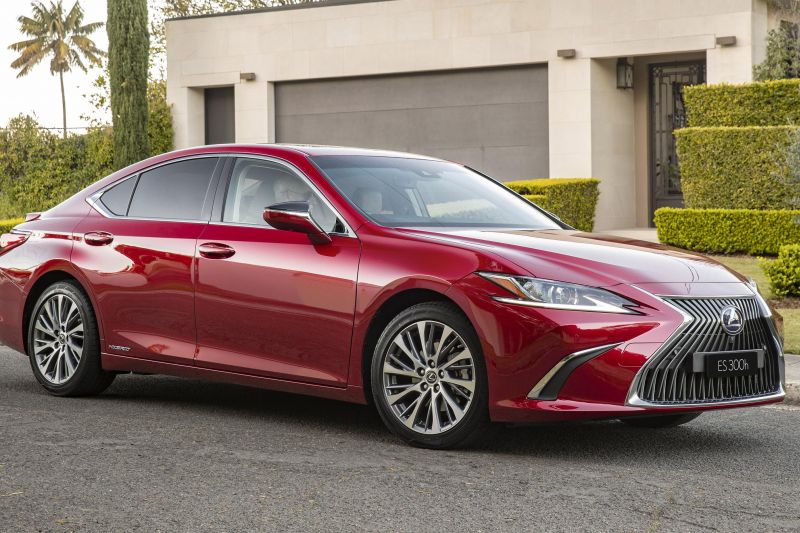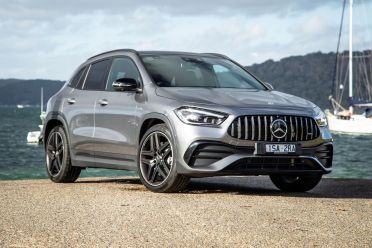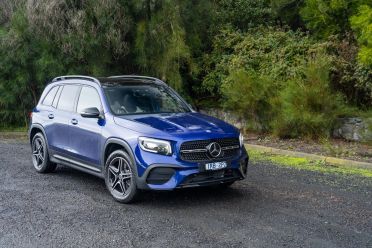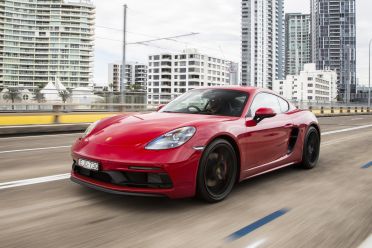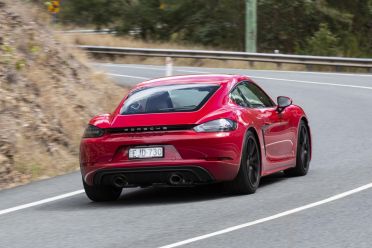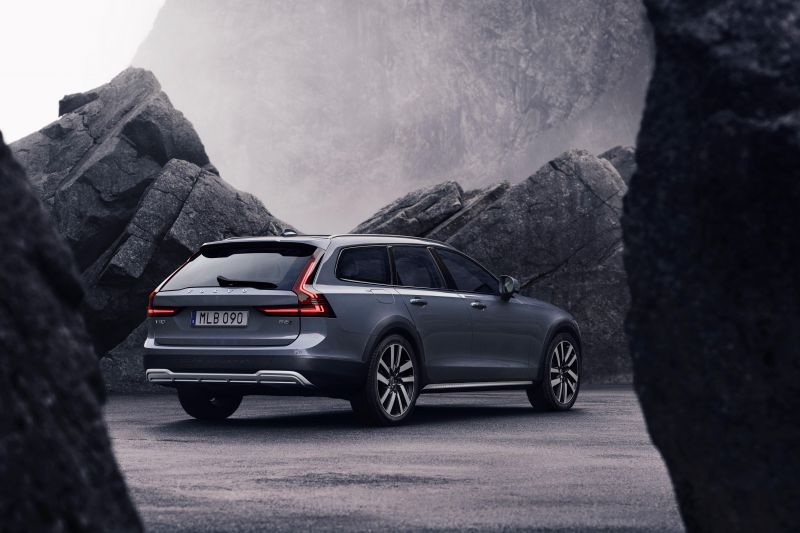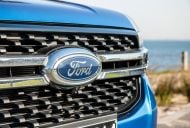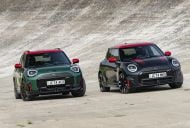Luxury car sales defied a wider market decline in October, led by strong months for BMW and Audi.
Although not quite at the heights of July this year, where BMW and Mercedes-Benz Car set new monthly sales records, both Audi and BMW managed to grow their sales compared to the same month in 2019.
| October 2020 | Sales | Growth vs Oct. 2019 |
|---|---|---|
| Mercedes-Benz Cars | 2288 | -11.5 per cent |
| BMW | 1843 | +3.2 per cent |
| Audi | 1481 | +18.9 per cent |
| Volvo Car | 703 | +1.2 per cent |
| Lexus | 649 | -27.1 per cent |
| Land Rover | 383 | -30.7 per cent |
| Porsche | 341 | +32.7 per cent |
| Alfa Romeo | 75 | -9.6 per cent |
| Jaguar | 66 | -56.0 per cent |
| Genesis | 4 | -50.0 per cent |
| TOTAL | 7833 | +1.7 per cent |
Compared to the slight increase recorded by luxury brands, the whole Australian new car market recorded 81,220 sales (-1.5 per cent) in October.
Alfa Romeo
Alfa Romeo is now down 14.5 per cent year-to-date on its tally from the same time in 2019, having sold 626 cars.
Although the refreshed Giulia sedan sold well in October, with 28 deliveries more than doubling the 13 from the same month last year, Stelvio sales dropped from 56 in October 2019 to just 35 this year.
For context, the BMW 3 Series and Mercedes-Benz C-Class are both averaging in excess of 240 sales per month, excluding related coupe and convertible models.
The updated Stelvio SUV will touch down early next year with more driver assistance tech and new interior features, including a fresh infotainment system and available digital instrument binnacle, which should help drive sales.
The Giulietta hatchback keeps on keeping on almost a decade after launch, with 12 sales representing an increase of one on last year.
Audi
Audi’s year of new models continues, and sales are strong as a result.
Year-to-date it’s narrowly ahead of the same point in 2019, having sold 12,313 cars this year compared to 12,168 last year.
Although sales of the A3 hatchback and sedan are down ahead of its replacement next year (2302 to date, -17.1 per cent), the new Q3 and Q3 Sportback are dominating the compact luxury SUV segment with 2898 sold to date this year.
It’s trailed by the BMW X1 (2443 sales) and Volvo XC40 (2447), and comfortably has the Mercedes-Benz GLA (2162) covered.
Sales of the Q7 large SUV are also up almost 35 per cent to date in 2020, although sales of the smaller Q5 have slowed (2393 to date, -28.2 per cent) as a facelift nears.
BMW
Like Audi, BMW is enjoying a strong 2020 despite the impacts of COVID-19.
Its year-to-date tally of 18,855 sales is only down 5.8 per cent on the same point in 2019, driven by strong performances from the 1 Series hatch, 3 Series sedan and wagon, and compact X1 SUV.
Sales of the 1 Series have stayed stable between 2019 and 2020 despite the pandemic, with 1963 registrations to date representing an incremental decline on last year.
BMW has managed to grow sales of a conventional sedan and wagon model, with 2643 registrations to the end of October. That’s up 4.8 per cent on the same in 2019.
Finally, the X1 is the third-best selling compact luxury SUV in Australia behind the Volvo XC40 and Audi Q3.
Genesis
Hyundai’s luxury brand is currently in the process of rolling out its BMW X5-rivalling GV80 SUV and 5 Series-rivalling G80 sedan, which should give its sales a boost.
Its 130 sales to date are up on the same point in 2019. The brand has set some lofty goals for the future, aiming to eventually own 10 per cent of the luxury market in Australia.
Along with the new G80 and GV80, the brand will next year welcome a new G70 sedan and GV70 SUV to the range.
It’s also planning to roll out electric vehicles in Australia, skipping hybrids in the process.
Jaguar
With 1138 sales to date in 2020, Jaguar is down 42.3 per cent compared to the same point in 2019.
Sales of the mid-sized XE sedan are down 47.8 per cent to date as Jaguar prepares to welcome an updated model with new interior technology and all-wheel drive as standard.
The larger XF sedan has found 29 homes to date, down 35.6 per cent on 2019, while 10 people have bought an XJ limousine in its last year on sale.
Jaguar’s best-selling car in Australia is the E-Pace SUV, with 561 sold to date in 2020 representing a 35.7 per cent decline on 2019. Also down is the larger F-Pace SUV, with 266 sales to date.
The good news for Jaguar is the glut of new products incoming – there are new versions of the E-Pace, F-Pace, XE, and XF bound for Australia.
Jaguar Land Rover’s latest Pivi Pro infotainment system features across the board, while the E-Pace has been transitioned to an all-new platform for 2021.
Land Rover/Range Rover
Land Rover has fared better than Jaguar throughout COVID-19, although its sales are still down to date in 2020.
The SUV specialist has sold 5015 cars this year, down 33.9 per cent on the 7584 it had managed to the end of October 2019.
The supply-constrained Defender has found 293 homes, and was the brand’s second-best selling car last month behind the Range Rover Sport.
Every model in the range has gone backwards in the sales race, with the smallest decline coming from the Evoque (-29.8 per cent).
Like Jaguar, Land Rover has updates either in Australia or arriving imminently for the Evoque, Discovery Sport, Range Rover, and Range Rover Sport.
Lexus
Last year was the best ever in Australia for Lexus. Although its decline isn’t as sharp as that seen by the wider market, the Japanese luxury brand is down 17 per cent to date in 2020 with 6636 sales.
Sales are down across the board, albeit only incrementally in some cases. Sales of the ES sedan have dipped by 1.9 per cent in 2020 to date, the smallest decline in the Lexus range, while the RX and RX L SUV are down 8.0 per cent.
Also holding relatively strong is the NX, down 8.1 per cent to date. The largest decline has come from the CT200h hatchback, which is down 48.5 per cent in 2020.
Mercedes-Benz
Australia’s largest luxury brand has maintained its lead in the sales race, despite strong competition from its German rivals.
Sales are down 9.8 per cent to date in 2020 for the three-pointed star, which has welcomed a number of new models into its sprawling range.
The new GLB seven-seat SUV has found 439 homes, while the new GLA is nipping at the heels of the Audi Q3, BMW X1, and Volvo XC40 in the hotly-contested compact luxury SUV market.
Sales of the critical GLC mid-sized SUV are down 20.4 per cent to 3956 this year so far, but the larger GLE has seen strong growth now the new model is available with a full model range and a coupe variant.
The A-Class is comfortably the best-selling small luxury car in Australia, having more than doubled sales of the Audi A1 and BMW 1 Series with 5146 delivered to date this year – up 33.2 per cent on 2019.
Meanwhile, the C-Class sedan and wagon is narrowly behind its arch-rival from BMW, the 3 Series. Where BMW has sold 2643 examples of the 3er, the three-pointed star has moved 2516 C-Classes.
Porsche
Pandemic? What pandemic?
Porsche has stayed strong through 2020, with sales declining 5.0 per cent to date.
Sales of the 911 are down 20 per cent after the 992-generation was rolled out last year, while the Boxster and Cayman have seen incremental declines in their sales. The arrival of new GTS 4.0 variants of both could see sales spike, though.
The Cayenne Coupe is new for 2020, and has found 415 homes to date. However, sales of the Cayenne are down from 1130 at this point in 2019 to just 622 this year.
The Macan is comfortably Porsche’s best seller, and has actually grown sales 2.6 per cent to 1810 this year so far.
Volvo Car
Volvo has seen its sales decline 7.5 per cent in 2020 so far, but its sales improved 1.2 per cent in October compared to the equivalent month in 2019.
Its best-selling car is the compact XC40 SUV, which is just 83 sales ahead of the larger XC60 on the charts. It’s down just 0.8 per cent on 2019, compared to a 15.2 per cent decline for the XC60.
The larger XC90 SUV is down 32.1 per cent to date in 2020, but the V90 Cross Country is sitting on 75 sales – up 161.43 per cent on the same point last year. That’s a win for wagon fans.

